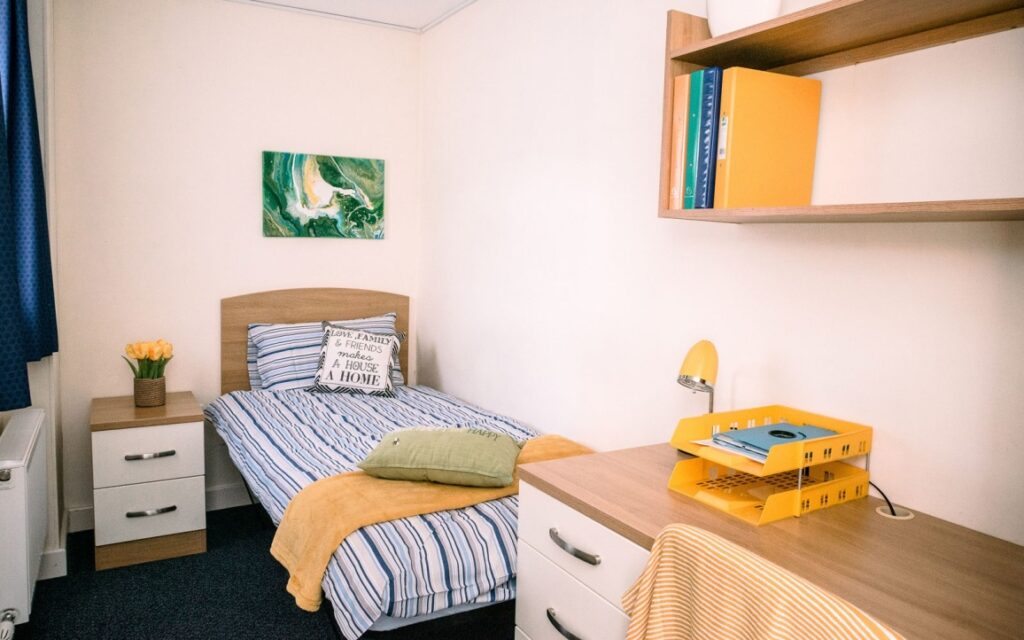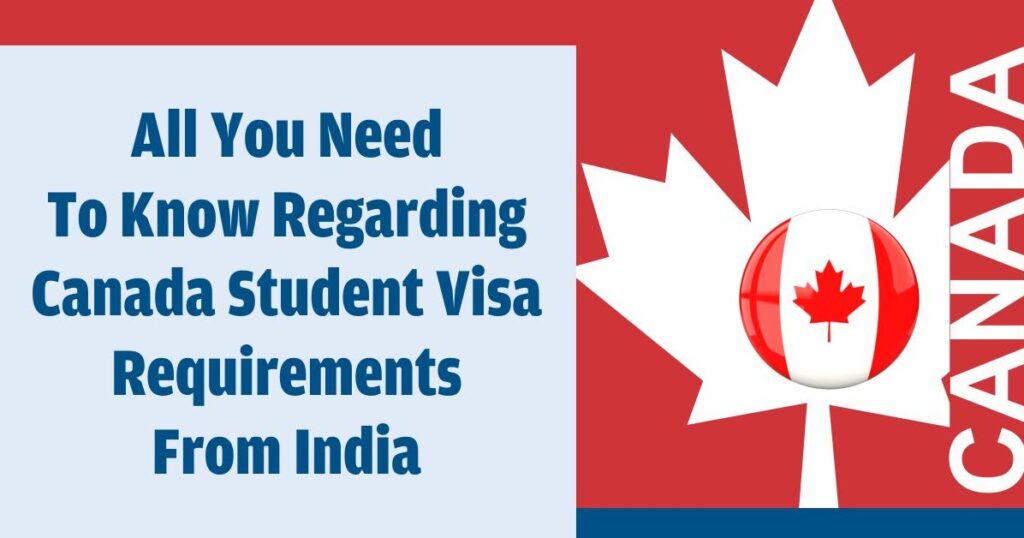Study in Canada

Canada has a well-established position among the world’s leading study destinations. The most popular Canadian provinces for international students are Ontario, British Columbia and Quebec, which between them are home to many of the top universities in Canada.
For those looking to study at an elite university in one of the world’s most developed nations, applying to study in Canada can be an attractive option. A total of 26 universities in Canada feature in the QS World University Rankings® 2019, of which three are in the world’s top 50, with 11 more making the world’s top 300 – a feat matched only by a handful of other nations.
The two highest Canadian entries are the University of Toronto (28th) and McGill University (33rd), located in Toronto and Montréal respectively (the two largest cities in Canada). Also ranked within the global top 220 are the University of Alberta, McMaster University, Université de Montréal, the University of Waterloo, and Western University.
Higher Study In Canada
Undergraduate degrees in Canada can take either three or four years to complete, depending on the university. Postgraduate degrees last between one and three years to complete, depending on the type of degree. Different types of higher education providers in Canada include: universities (which carry out research and provide both undergraduate and postgraduate degrees), community colleges and technical, applied arts or applied science schools (which grant certificates, diplomas, associate’s degrees and bachelor’s degrees).
As universities in Canada are managed by provincial governments, you’ll find there will be slight differences in how education is carried out. Quebec, in particular, is markedly different to the rest of Canada, with different term times and length of study. For instance, students finish secondary school a year early and must take a mandatory pre-university General and Vocational College (CEGEP) course, essentially eliminating the freshman year of university.

A Safe Place To Study

Canada is considered to be a relatively peaceful, safe and orderly country. Its violent crime rate decreased for ten consecutive years from 1993 to 2003. Unlike its US neighbours to the south, firearms are strictly controlled and generally are not permitted.
International students who come to Canada should follow the same common sense safety precautions as they would anywhere in the world. Students can contact any Can-Asia Centre to learn more about personal safety, or attend a safety orientation session at their school upon their arrival in Canada.
A High Tech Country
Canada is a stimulating environment in which to do business and to learn, thanks to the contributions of many bright and talented scientists, researchers and entrepreneurs. The country is an international leader in computer and information technologies and has a reputation for excellence in such sectors as telecommunications, transportation and engineering; and specifically, aerospace, urban transport, microelectronics, medical devices, advanced software, hydroelectric and nuclear power, lasers and opto-electronics, biotechnology, food and beverage processing, geometrics; and ocean and environmental industries.
High Quality Education
Education institutions are not officially ranked in Canada, but you will find quality institutions across the country. When choosing your school in Canada, consider the type, size and location of the institution. If you are interested in a particular area of study, Take our help in finding the right programs and choosing the right institution.
Why Study In Canada
EDUCATION SYSTEM IN CANADA IS INTERNATIONALLY RECOGNIZED

Canada has developed a first-rate education system with high standards. A Canadian degree, diploma or certificate is recognized globally as being equivalent to those from the United States and Commonwealth countries.
Canada Is One Of The Best Place In The World To Live
From safe neighbourhoods in some of North America’s most cosmopolitan cities to top-notch health care and public transportation, excellence permeates every aspect of Canadian life – including a world class higher education system. The United Nations has consistently ranked Canada as one of the top three places in the world to live. Canada earned From safe neighbourhoods in some of North America’s most cosmopolitan cities to top-notch health care and public transportation, excellence permeates every aspect of Canadian life – including a world class higher education system. The United Nations has consistently ranked Canada as one of the top three places in the world to live. Canada earned high marks for its access to education, high life expectancy, and low crime rates.marks for its access to education, high life expectancy, and low crime rates.
Multicultral And Welcoming
Canada has traditionally been a country of immigrants and has a policy of encouraging multicultural diversity. In fact, one out of three Canadians has an ethnic background other than English, French or Aboriginal.
Excellent Health Care
Compared to other countries, medical insurance is inexpensive in Canada yet the services that Canadian hospitals provide are among some of the most advanced and accessible in the world.
A Safe Place To study
Canada is considered to be a relatively peaceful, safe and orderly country. Since the beginning of 1990’s, there has been a consistent drop in crime rates in Canada.
• Affordable Education
• Innovative and Abundant Research Opportunities
• Immigration Possibilities
• Exciting Campus Lifestyle
• Healthy and Safe Communities
• International students can often work while they study & Internships

Requirements To Study In Canada
English Requirement
Diploma and Bachelor Degrees: IELTS 6.0/ 6.5 band with no band less than 5.5/ 6.0 Graduate Diploma
Post Graduate Diploma: 6.0/ 6.5 band Masters Degrees: 6.5 band with no band less than 6.0
Bachelor: 60% & 6.5 Bands, no band less than 6.0
MBA: 60% & 6 .5 Bands, no band less than 6.0
GMAT: is also required for MBA by most of the universities. Check individual requirement.
Cost Of Studying In Canada

Tuition fees in Canada vary by institution and province, but the cost is generally more affordable when compared to other countries around the world. Technical and medical courses are more expensive than arts courses.
On an average, the tuition and fees range from CAD 7,000 to CAD 35,000 per year for an International student.
The cost of studying in Canada will include other factors such as the cost of living and the student and visa application fees you will need to pay.
Intakes In The Canada
Canadian universities and colleges offer three intakes. Intakes may also be referred to as a semester in some institutions. The three intakes available in Canada are:
Intake 1: Fall Semester- A popular intake starts in the month of September
Intake 2: Winter Semester- Starts in the month of January
Intake 3: Summer Semester- Usually starts from April/ May, this intake is available for limited programs and colleges.
We would advise you to apply well in advance because admissions and scholarships get difficult when you apply closer to the deadline. It is better to apply 6 to 9 months before the academic session starts.
Living In Canada
Climate
In Canada, there are four different seasons: spring, summer, autumn (fall), and winter. In the winter, the days are shorter and colder. In the summer, the days are longer and warmer. Overall, the climate varies dramatically across Canada. Many factors influence climate, such as distance from large bodies of water, latitude, elevation, and prevailing winds.
Some regions, particularly the southern coastal regions, have relatively mild climates. Temperatures might range from -10° to 5° Celsius in the winter and 10°C to 30°C in the summer. In these coastal regions, there is more rain than snow during the winter. Some parts of Canada, such as the West Coast, are quite humid. Other parts, like the Prairies, are very dry.
Work Opportunity In Canada

Part-Time Work During Studies
Students are allowed to work part time 20 hours per week on campus/ off campus and full time during holidays while studying the course.
In Canada, minimum wages varies in different provinces. Under the Constitution of Canada, the responsibility for enacting and enforcing labour law including minimum wages in Canada rests with the ten provinces. Minimum wages varies between 8 – 10.25 CD$ per hour depending upon the province.
Work Opportunities After Studies
A Post-Graduation Work Permit cannot be valid longer than the length of time you studied in Canada. For example, students graduating from a four-year degree program might be eligible for a three-year year work permit. Students graduating from an eight-month certificate program would only be eligible for a work permit of eight months.
But more than eight months you may get a work permit for a period no longer than the length of time you studied (for example, if you studied for nine months, a work permit may be issued for a period of nine months) two years or more a work permit may be issued for three years.
Accommodation

Once students secure a place in the Abroad University or College, our team helps them find suitable accommodation. In our opinion the accommodation of any student in any country is one of the most crucial decisions and we place enormous emphasis in understanding the student’s needs and assist in making informed choices. There is a wide variety of accommodation types in the Abroad
On Campus
University Accommodation: Most universities in the Abroad are able to provide accommodation to students on campus.
Off campus
Studios: Can be found in Private Halls. Rooms with Private Toilet, Bathroom, kitchen, Office and bed.
En-suite: This particular type of accommodation is the most common in Abroad, rooms with private bathroom, WC and bed but common kitchen and living room.
Canada Student Visa Requirements:

You will generally need the following for your CANADA Student Visa application:
• Valid Passport
• Attested copies of 10th, 12th and Degree certificates
• Academic references – 2
• Employer references – 2
• SOP (Statement of Purpose)
• Certificates of extracurricular achievements
• An acceptance letter from your education institution
• Proof of payment
• Proof of financial funds
• Passport size photographs
• Study Permit and visa
• English Proficiency
• Your University will make you aware of additional requirements if any prior to your application.

